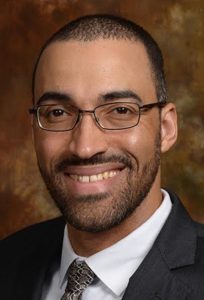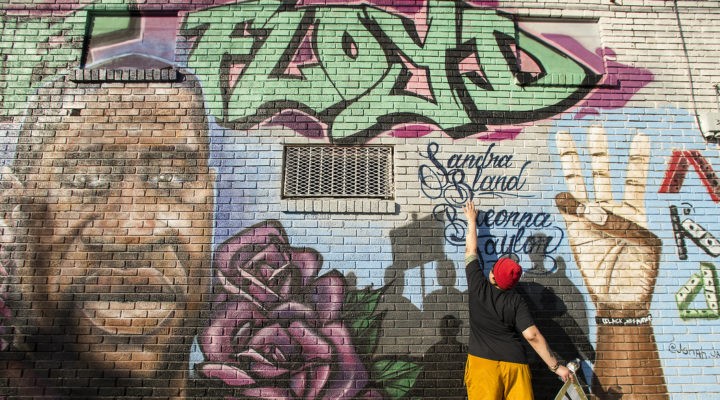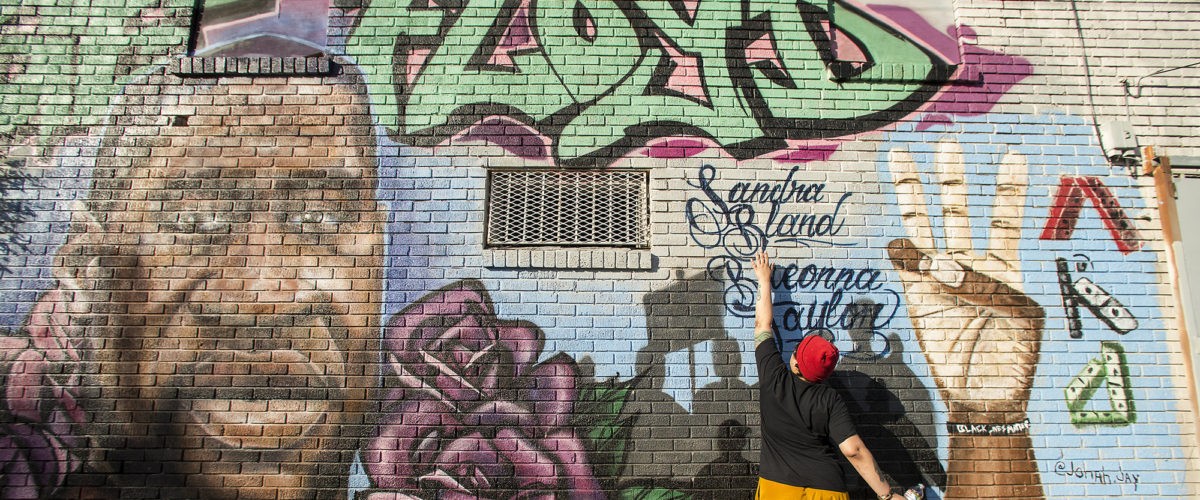There were those who were holding their breath and did not even know it. They had suspended their respiration — instinctively but unconsciously — because for so long, none of us have been able to breathe in an atmosphere polluted by discrimination, white supremacy, implicit bias and racist brutality.
We expected the worst, because history has taught us to assume it. No justice. No accountability. No peace that can last.
When the verdict was read — guilty on all counts — we could breathe again. I breathed a sigh of relief, because I did not think America could endure another killer cop walking free while a Black man lay six feet under. One of my elder colleagues told me that she could not “wrap her head around” a scenario where Derek Chauvin was acquitted.

Paul Robeson Ford
The significance of Tuesday’s verdict was not so much that Chauvin was found guilty, but that George Floyd was proved innocent — innocent of the capital crime of being Black in America.
Like nearly every other single trial involving a white police perpetrator and a Black victim, Floyd had been put on trial by the defense, even though Chauvin was the one who was actually facing charges of murder and manslaughter. Floyd’s character and conduct, and past and present history of drug use, were all scrutinized and exposed in an effort to make clear that Chauvin was without fault and Floyd was guilty, and his guilt justified and excused his execution on the streets of Minneapolis.
So there was good reason for my colleague to struggle with conceiving of a scenario where more than 9 minutes with a knee on the neck of a Black man was not enough to prove beyond a reasonable doubt that George Floyd’s life did not matter to Derek Chauvin (or the other cops who stood by while it happened). There was good reason to be preemptively appalled at the possibility of Chauvin walking away from all this without any accountability.
It has happened so many times before, but it could not possibly happen this time, right?
Perhaps that’s why some people were holding their breath and did not even know it. Their bodies were arrested by the possibility that justice would be deferred and denied again. Their bodies — and perhaps even their spirits — had adjusted to a condition where no one seemed willing to do anything about the pollution that was killing them slowly.
The jury was supposed to come in at 4:20 EST. It was close to 5:00 before the judge read the verdicts. How much longer could anyone have held their breath without passing out? How much longer would the body have continued to function normally without showing the effects of the lack of air? It was almost like a suicidal ideation that our bodies had internalized and made manifest in the flesh. Racism is killing us.
“The acquittal of George Floyd on all counts allows us to breathe again.”
The acquittal of George Floyd on all counts allows us to breathe again — at least momentarily; and it is a sign of resurrection made real in this Eastertide season. If resurrection means anything, it is that death does not have the last word, and that those who could not breathe can breathe again.
James Cone once described the Cross as “victory by way of failure.” He could only say that because he stood nearly 2,000 years from that fateful Friday that was anything but “good” at the time.
We were all hanging on the cross with George Floyd until 5:00 EST Tuesday. We were all hanging there, waiting to breathe again, knowing deep down that there was a possibility that we might have to give up the ghost and be finished with any notion that this moment in time was different than so many others that we have seen before.
One of the senior saints at my church told me that God had “shown me something new” on Tuesday evening — remarking further that “I never thought I would live to see a white police officer convicted of murder for killing a Black man.” This particular woman has more than a quarter century of life on me; but as I thought about it, I’m not so sure that I thought I would live to see that day either.
Maybe that’s why I was holding my breath, too.
In recent years, I have come to believe that Theodore Parker’s observation (made famous by Martin Luther King Jr.) that the “arc of the moral universe is long, but it bends toward justice” needs to be revised. Perhaps it is more accurate to say that “the arc of the moral universe is long, but it can be bent toward justice.”
“Perhaps it is more accurate to say that ‘the arc of the moral universe is long, but it can be bent toward justice.’”
It can be bent by jurors who finally choose to believe that Black Lives Matter. It can be bent by police officers who are finally willing to break the “blue wall” and testify against other cops. It can be bent by judges who finally choose to embrace impartiality instead of rationalizing their own prejudicial ideals as white people while hiding in black robes.
We can bend the arc of the moral universe with these hands; but in order for us to do so, we have to finally see the truth about ourselves, we have to finally see the racist smog in the air, and we have to decide that it is time to build a world where everyone can breathe.
George Floyd is just one man who was acquitted for the crime of being Black in America. There are so many more whose breathless bodies are still waiting for justice and accountability and the affirmation that they, too, were innocent. So now that we can breathe again, we must be prepared to raise our voices and say their names, too.
The old hymn says, “Didn’t my Lord deliver Daniel, and why not every man?” The work of deliverance for every man and woman (both cisgendered and transgendered) lies ahead. Keep breathing, keep struggling, keep pressing on. Deliverance is coming.
Paul Robeson Ford serves as senior pastor of First Baptist Church (Highland Avenue) in Winston-Salem, N.C. He was born and raised in New York City and grew up at the Riverside Church under the leadership of James A. Forbes Jr. He received a master of divinity degree from the Divinity School at the University of Chicago, where he is now a candidate for the Ph.D. in theology.
Related articles:
What should we learn from the Derek Chauvin verdict? | Opinion by Mark Wingfield
George Floyd and the silence of white evangelical America | Opinion by Andrew Manis
Justice for George Floyd: what went wrong and how to make it right | Opinion by Wendell Griffen


